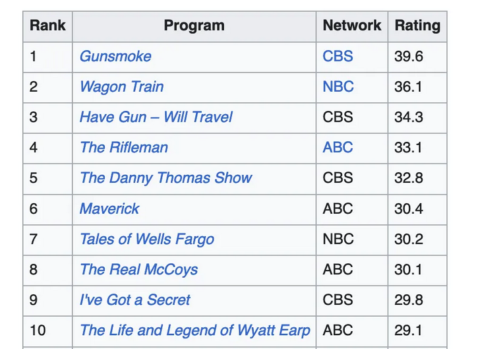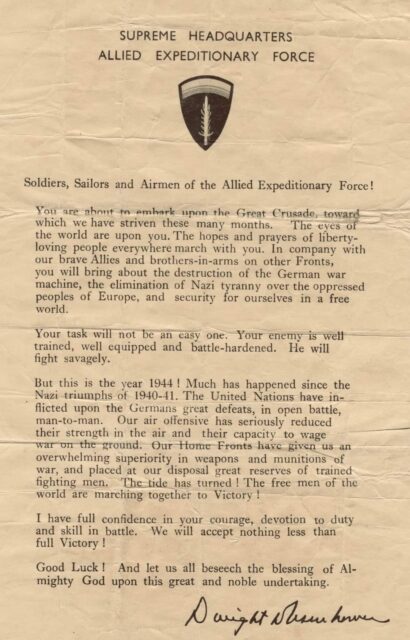June 6, 2024
80 years ago
Battlefield Normandy – The Battle of Juno Beach 6 June 1944
The AceDestroyer
Published Nov 18, 2018Hello and welcome to the first episode of my Battlefield Normandy series. This part is all about the landings at Juno beach on June 6 1944, and what happened on the first day of the Allied landings in Normandy. In this episode we will take a look at all the landing beaches and the subsequent fighting. You can find the maps on my Facebook page. The next episode will be about the battle of Authie on June 7, when the Canadians first met the 12th SS Hitlerjugend. I hope you’ll enjoy this video and find it helpful.
(more…)
QotD: Herbert Hoover as Woodrow Wilson’s “Food Dictator”
In 1917, America enters World War I. Hoover […] returns to the US a war hero. The New York Times proclaims Hoover’s CRB work “the greatest American achievement of the last two years”. There is talk that he should run for President. Instead, he goes to Washington and tells President Woodrow Wilson he is at his service.
Wilson is working on the greatest mobilization in American history. He realizes one of the US’ most important roles will be breadbasket for the Allied Powers, and names Hoover “food commissioner”, in charge of ensuring that there is enough food to support the troops, the home front, and the other Allies. His powers are absurdly vast – he can do anything at all related to the nation’s food supply, from fixing prices to confiscating shipments from telling families what to eat. The press affectionately dubs him “Food Dictator” (I assume today they would use “Food Czar”, but this is 1917 and it is Too Soon).
Hoover displays the same manic energy he showed in Belgium. His public relations blitz telling families to save food is so successful that the word “Hooverize” enters the language, meaning to ration or consume efficiently. But it turns out none of this is necessary. Hoover improves food production and distribution efficiency so much that no rationing is needed, America has lots of food to export to Europe, and his rationing agency makes an eight-digit profit selling all the extra food it has.
By 1918, Europe is in ruins. The warring powers have declared an Armistice, but their people are starving, and winter is coming on fast. Also, Herbert Hoover has so much food that he has to swim through amber waves of grain to get to work every morning. Mountains of uneaten pork bellies are starting to blot out the sky. Maybe one of these problems can solve the other? President Wilson dispatches Hoover to Europe as “special representative for relief and economic rehabilitation”. Hoover rises to the challenge:
Hoover accepted the assignment with the usual claim that he had no interest in the job, simultaneously seeking for himself the broadest possible mandate and absolute control. The broad mandate, he said, was essential, because he could not hope to deliver food without refurnishing Europe’s broken finance, trade, communications, and transportation systems …
Hoover had a hundred ships filled with food bound for neutral and newly liberated parts of the Continent before the peace conferences were even underway. He formalized his power in January 1919 by drafting for Wilson a post facto executive order authorizing the creation of the American Relief Administration (ARA), with Hoover as its executive director, authorized to feed Europe by practically any means he deemed necessary. He addressed the order to himself and passed it to the president for his signature …
The actual delivery of relief was ingeniously improvised. Only Hoover, with his keen grasp of the mechanics of civilization, could have made the logistics of rehabilitating a war-ravaged continent look easy. He arranged to extend the tours of thousands of US Army officers already on the scene and deployed them as ARA agents in 32 different countries. Finding Europe’s telegraph and telephone services a shambles, he used US Navy vessels and Army Signal Corps employees to devise the best-functioning and most secure wireless system on the continent. Needing transportation, Hoover took charge of ports and canals and rebuilt railroads in Central and Eastern Europe. The ARA was for a time the only agency that could reliably arrange shipping between nations …
The New York Times said it was only apparent in retrospect how much power Hoover wielded during the peace talks. “He has been the nearest approach Europe has had to a dictator since Napoleon.”
Once again, Hoover faces not only the inherent challenge of feeding millions, but opposition from the national governments he is trying to serve. Britain and France plan to let Germany starve, hoping this will decrease its bargaining power at Versailles. They ban Hoover from transporting any food to the defeated Central Powers. Hoover, “in a series of transactions so byzantine it was impossible for outsiders to see exactly what he was up to”, causes some kind of absurd logistics chain that results in 42% of the food getting to Germany in untraceable ways.
He is less able to stop the European powers’ controlled implosion at Versailles. He believes 100% in Woodrow Wilson’s vision of a fair peace treaty with no reparations for Germany and a League Of Nations powerful enough to prevent any future wars. But Wilson and Hoover famously fail. Hoover predicts a second World War in five years (later he lowers his estimate to “thirty days”), but takes comfort in what he has been able to accomplish thus far.
He returns to the US as some sort of super-double-war-hero. He is credited with saving tens of millions of lives, keeping Europe from fraying apart, and preventing the spread of Communism. He is not just a saint but a magician, accomplishing feats of logistics that everyone believed impossible. John Maynard Keynes:
Never was a nobler work of disinterested goodwill carried through with more tenacy and sincerity and skill, and with less thanks either asked or given. The ungrateful Governments of Europe owe much more to the statesmanship and insight of Mr. Hoover and his band of American workers than they have yet appreciated or will ever acknowledge. It was their efforts … often acting in the teeth of European obstruction, which not only saved an immense amount of human suffering, but averted a widespread breakdown of the European system.
Scott Alexander, “Book Review: Hoover”, Slate Star Codex, 2020-03-17.
June 5, 2024
Hollywood has been here before … and they learned nothing
Ted Gioia illustrates the mind-blowing dominance of westerns on TV and in the theatre in the 1950s and how quickly the boom was over and has never come close to recovering:

Source – https://en.wikipedia.org/wiki/Top-rated_United_States_television_programs_of_1958%E2%80%9359
Eight of the top ten shows during the 1958-59 season were westerns.
Spaceships were in the news every day back then, but on TV it was just horses — and occasionally a covered wagon. Each of the three networks was caught up in a time warp, partying like it was 1899.
Any fool could see that they were saturating the market. Yet the studios kept launching new westerns with regularity, although with less confidence, for another decade, more or less.
Back in 1955, the three US TV networks had introduced three new western-themed series — Gunsmoke, Cheyenne, and Wyatt Earp. But two years later, the networks ramped up their investment in cowboys, launching nine new westerns that fall.
And it got worse.
In 1958, these three networks introduced ten more western series. On some nights, you could watch cowboys for two hours straight on ABC. CBS and NBC also started scheduling back-to-back Wild West shows.
I need to stress that the western was already an exhausted genre long before 1960. Movie theaters had relied on cowboys as an audience draw going back at least to Broncho Billy Anderson and The Great Train Robbery (1903).
And cheap books and magazines with stories of the Wild West had already been around for decades at that point. By my measure, nostalgia for the old West dates back to the launch of Buffalo Bill’s Wild West show on May 19, 1883 in Omaha, Nebraska — four years after the invention of the gasoline engine.
[…]
Younger viewers were the first to abandon the western — a telling sign, especially when you consider that, back in the 1930s, children and teens had been the core audience for the genre.
By the time Gunsmoke went off the air in 1975, the few remaining fans were old-timers — maybe the same ones who had gone to movie theaters to cheer for Roy Rogers in the 1930s. That show had been the most popular TV series in the US for four seasons in the late 1950s. But a cowboy series would never do that again.
Youngsters lost interest in westerns despite a proliferation of merchandise. During my childhood, I paid no attention to the cowboy genre — nor did any of my friends. But brand merchandise was everywhere. We could buy Gunsmoke comic books, trading cards, lunchboxes, and — of course! — toy guns, among other paraphernalia.
With the benefit of hindsight, we can see that these products did not develop the market — they merely saturated it.
What Troops Ate On D-Day – World War 2 Meals & Rations
Tasting History with Max Miller
Published May 21, 2024D-Day Scrambled Eggs and Bacon served with toast and D-Day Lemonade
City/Region: United States of America
Time Period: 1944The food in the final days leading up to D-Day was a definite improvement over the sad, dry sandwiches some soldiers had been getting. All-you-can-eat meals of steak, pork chops, sides, lemon meringue pie, ice cream, and even popcorn and candy during movie screenings kept the sequestered troops well fed. The last meal served before the landing was breakfast in the very early hours of the morning, said by many to be scrambled eggs and bacon.
This meal was made in the south of England, but the bacon was from the U.S., so American-style bacon is best here. The eggs don’t taste bad, but the texture is not like fresh scrambled eggs at all (more like tofu). The bacon is real, though, and that really saves the dish. Powdered eggs can be found online and at camping stores.
No. 749. Scrambled Eggs
Water, cold … 2 1/2 quarts (2 1/2 No. 56 dippers)
Eggs, powdered … 1 1/2 pounds (1/2 3-pound can)
Salt … To taste
Pepper … To taste
Lard or bacon fat … 1 pound (1/2 No. 56 dipper)Sift eggs. Pour 1/3 of the water into a utensil suitable for mixing eggs. Add powdered eggs. Stir vigorously with whip or slit spoon until mixture is absolutely smooth. Tip utensil while stirring.
Add salt, pepper, and remaining water slowly to eggs, stirring until eggs are completely dissolved.
Melt fat in baking pan. Pour liquid eggs into hot fat.
Stir as eggs begin to thicken. Continue stirring slowly until eggs are cooked slightly less than desired for serving.
Take eggs from fire while soft, as they will continue to thicken after being removed from heat.No. 750. Diced Ham (or Bacon) and Scrambled Eggs
Add 3 pounds of ham or bacon to basic recipe for scrambled eggs; omit lard. Fry ham or bacon until crisp and brown.
Pour egg solution over meat and fat. Stir and cook as in basic recipe. Additional fat may be needed if ham is used.
— TM 10-412 US Army Technical Manual. Army Recipes by the U.S. War Department, 1946
“Stop viewing every inconvenience discovered in the economy as a market failure needing government intervention”
Argentine President Javier Milei visited the Hoover Institution at Stanford and spoke about his approach to addressing Argentina’s many economic issues during his first six-months in office:
Milei recalled his years as an economist with HSBC Argentina and work advising a large pension fund. He explained how he had to remain adaptable to changing market conditions and new ideas and not make assumptions based on static economic models.
“Reality is complex, but when the model doesn’t match reality, you get rid of it,” he said. “You don’t get angry with reality.”
Milei argued that many twenty-first-century leaders see every failure of an economic model as proof of a market failure warranting government intervention.
He added that the state interventions are slowly strangling our ability to generate economic growth.
“Let us not allow the fatally conceited to destroy our lives with regulations.”
Throughout his speech of more than one hour, Milei brought up luminaries who’ve shaped his worldview, including Adam Smith, Friedrich von Hayek, Milton Friedman, Henry Hazlitt, and Murray N. Rothbard. He described how they influenced his view that everything should flow from the promotion of private enterprise and maximum possible growth, and that state intervention often only exacerbates the problem it was intended to solve.
Milei described himself as a libertarian and a minarchist who believes the role of the state is only to protect individuals and their property from aggression.
While talking about the challenges of governing and the Austrian school of economists who influenced his worldview, he suggested that it may have been his love of conflict that brought him away from work as an economist and television commentator and into the position he finds himself today.
“That’s probably why I got into politics. I love conflict.”
Milei said that his government is working to tame inflation and get public spending under control, and he applauded his economy minister, Luis Caputo, sitting in the audience.
“He’s in charge of the chainsaw operation,” Milei said, alluding to the chainsaw he brought with him to campaign rallies to symbolize his anti-spending agenda. “We are getting rid of a whole lot of things.”
“I am very happy when my economy minister gets applause. He’s making the greatest adjustment not only in the history of Argentina but in the whole history of humanity. We have already adjusted by 13 percent of GDP.”
He then turned to confront those he called “statists” and “regulators” who oppose his efforts in Argentina.
“They’re sitting in an office, and they create regulation just to justify their own existence,” he said. “This has a direct impact on innovation … They regulate just out of ignorance or just to justify the chair [they sit on], and they’re ruining our lives.”
He argued that most people in economics can’t even articulate where the state ends and the market begins.
“The market is ourselves,” he said. “When there’s talk of the market, we are the market.”
He described the market as a “social cooperation process” where “property rights are voluntarily exchanged”. He contrasted this with interaction with the state, where participants are compelled to act in a certain way.
“State intervention is always bad, because it’s based on coercion, on force, and nothing based on coercion can be good.”
HMCS Charlottetown: A formidable submarine-hunting force in Nato’s fleet
Forces News
Published Mar 1, 2024Conceived in the middle of the Cold War era, the Canadian Royal Navy frigate HMCS Charlottetown has evolved over three decades of service, becoming one of the most capable and adaptable ships in Canada’s navy.
After setting sail for Nato’s Exercise Steadfast Defender in the North Sea, she made a stop in Edinburgh en route to participating in the alliance’s largest training mission since the Cold War.
(more…)
June 4, 2024
How Wall Street billionaires are reacting to the verdict against Trump
Under normal circumstances, you might think that Trump would find doors closed to him among the big-money folks on Wall Street after his trial ended with 34 guilty verdicts … yet the opposite is reported to be happening and his campaign is being inundated with big financial donations:
My quite strong suspicion is that Leticia James and Alvin Bragg have caused alarm by targeting business records and real estate valuations in corporate borrowing, things that everyone shares in finance, insurance, and real estate, for criminalization and destructive litigation. My bet is that capital is turning hard against lawfare, seeking to disincentivize and punish an attack on the basics of corporate business. People in business are horrified by a flamethrower of a prosecution over old business records.
So Bloomberg’s interpretation is that Wall Street is standing with Trump despite the verdict, but my bet is that Wall Street, Silicon Valley, and other business interests are turning against Democrats because of the verdict — because Democratic prosecutors in New York (and especially Manhattan), America’s financial capital, are doing things like turning seven year-old business record misdemeanors into a long list of Frankenstein felonies.
That interpretation makes capital’s support for Trump self-interested rather than morally outraged, though not over Bloomberg’s explanation of lower taxes, as people who keep business records turn against the party that bizarrely overcriminalizes the handling of business records when the target becomes politically unfashionable. If capital turns against the Democratic Party — if the ATM machine stops spitting out campaign funding — the moment becomes pretty significant, and Alvin Bragg becomes the dog who caught the car.
Assassination-to-order, or war by other means
I was not well-informed about the goings-on within Vladimir Putin’s Russia even before the Russo-Ukrainian war went into high gear and disrupted all information from that part of the world and I hear much but trust nothing I’ve been hearing since then. kulak, on the other hand, seems to have paid much closer attention to Russian internal affairs, including one particular political assassination:
On August 20, 2022, 29 year old Daria Dugina was killed in a car bombing on the outskirts of Moscow. The bomb, it was widely agreed, had been intended for her father the famed/infamous Russian philosopher Alexander Dugin (whose works are now shockingly hard to get in English and appears on my “Real Banned Books List“), and while there were lots of deflections and denials, it was fairly widely agreed the plot had been carried out with US and UK backing by Ukrainian-aligned insurgents and agents within Russia.
Indeed many US aligned “Journalists”, “Open Source Intelligence” types, Bellingcat-associated influencers, and other CIA-aligned carve outs openly CELEBRATED the death of Daria, since she had been involved in Putin-aligned political youth organizing.
Of course, the fact political volunteers and door knockers have NEVER been considered legitimate military targets, nor the fact the real target was a PHILOSOPHER and everything he had ever done would have been perfectly legal to do even within the United States under the auspices of the first amendment … that somehow never occurred to these commentators. Nor the wider US intellectual class, and somehow neither did the natural logical conclusion.
Russia is by and large NOT run by its political organizers and academics. You could probably kill 1000 Russian university professors and it wouldn’t unbalance the Russian state too extraordinarily. Russia is run by a combination of old Soviet secret policemen, gangsters, and crooked/”reformed” oligarchs all attempting to reorganize themselves into a somewhat respectable upper-class, with a blend of impressive and farcical results.
Before he was killed in an internal power struggle the former head of Wagner PMC Yevgeny Prigozhin embodied this, turning from a St. Petersburg gangster, to a prisoner, to a (definitely money laundering) caterer for the presidential palace, to the head of a PMC mercenary company. Every prominent person in Russia has a career like this Right down to Putin going from a KGB officer, to a gangster/political fixer, to president … Every elite member of Russian society is basically leading a life ripped right from Grand Theft Auto IV, complete with the eternal struggles of trying to “go legit” and formalize everything as a normal upper-class elite, to being dragged back into gangsterism or even Soviet power struggles by their complex past.
Put simply the actual Russian Elite are not people very intimidated by assassination. They’ve all known people to be killed in power struggles, espionage, and criminal altercations, and are used to the anxiety that death might wait for them around the corner. And the US and Ukraine lashing out at academics who might be intimidated doesn’t really affect them.
However, if the Russian state did the logical tit-for-tat escalation and responded in kind … that would shake America to its knees. America actually IS run by its academics, political organizers, and bureaucrats. And almost none of the people with power have a gangster or KGB agent’s stoic familiarity with death and danger.
Killing a Russian Academics daughter did very little to the Russian state… It’d be a very different story for Russia’s armed agents to do the same in America and kill Chelsea Clinton, daughter of current Columbia professor Hillary Clinton.
It’s be a very different story if Russia assassinated Brookings senior fellow Robert Kagan, husband of former under-secretary of state Victoria Nuland. Or any number of Harvard, Stanford, Yale or Princeton political philosophers or International Relations commentators, or members of their family.
One can imagine the headlines if John Hopkins and RAND fellow Francis Fukuyama was so killed:
“It is the end of Fukuyama”
– History
And again remember, though the various income streams of the US elite may resemble embezzlement, protection rackets, and money laundering … these aren’t gangsters. These are complacent, highly agreeable, shockingly unoriginal and cowardly … academics and bureaucrats.
Indeed one can imagine Putin weighing the risk of such a reprisal and then deciding against it, not out of ethical concerns, but because the American ruling class is too unpredictable and prone to womanly hysterias.
Indeed amongst the few senior American and Ukrainian officials who knew of the attack beforehand you can imagine them salivating that Putin might respond in kind and the subsequent freakout might commit the US to joining the war (one of the few scenarios where Ukraine could possible survive against their overwhelming odds).
J.K. Rowling’s most convincing and true-to-life villain in the Harry Potter stories
I’m with Jon Miltimore on this — J.K. Rowling’s most disturbing and best-written villain isn’t “He Who Must Not Be Named” or any of the other (frankly cardboard-y) magical villains … it’s Dolores Umbridge, a career bureaucrat who could have been drawn from any western civil service senior management position:
Umbridge, portrayed in the films by English actress Imelda Staunton, isn’t some apparition of the underworld or a creature of the Dark Forest. She’s the Senior Undersecretary to the Minister of Magic, the man who runs the government (the Ministry of Magic) in Rowling’s fictional world.
Umbridge wears pink, preaches about “decorum” in a saccharine voice, smiles constantly, and resembles a sweet but stern grandmother. Her intense, unblinking eyes, however, suggest something malevolent lurks beneath. And boy, does it.
“The gently smiling Dolores Umbridge, with her girlish voice, toadlike face, and clutching, stubby fingers, is the greatest make-believe villain to come along since Hannibal Lecter,” horror author Stephen King wrote in a review of Harry Potter and the Order of the Phoenix, the book in which Umbridge is introduced.
Umbridge’s “Desire to Control, to Punish”
What makes Umbridge so evil that King would compare her to Hannibal Lecter, the man widely considered the greatest villain of all time?
I asked myself this question, and I believe the answer lies in the fact that Dolores Umbridge is so real — and in more ways than one.
First, it’s noteworthy that Rowling based Umbridge on an actual person from her past, a teacher she once had “whom I disliked intensely on sight”.
In a blog post written years ago, Rowling explained that her dislike of the woman was almost irrational (and apparently mutual). Though the woman had a “pronounced taste for twee accessories” — including “a tiny little plastic bow slide” and a fondness for “pale lemon” colors which Rowling said was more “appropriate to a girl of three” — Rowling said “a lack of real warmth or charity” lurked below her sugary exterior.
The description reminded me of another detestable literary villain: Nurse Ratched, the despicable antagonist of Randle Murphy in Ken Kesey’s magnificent 1962 novel One Flew Over the Cuckoo’s Nest.
Kesey’s description of Nurse Ratched conjures to mind a character much like Umbridge.
“Her face is smooth, calculated, and precision-made, like an expensive baby doll, skin like flesh-colored enamel, blend of white and cream and baby-blue eyes, small nose, pink little nostrils — everything working together except the color on her lips and fingernails …”
While there are similarities in the appearances of Dolores Umbridge and Nurse Ratched, their true commonality is what’s underneath their saccharine exteriors.
Snipers in World War 1
The Great War
Published Feb 9, 2024In fall 1914, the British and French armies on the First World War’s Western Front were wrestling with a problem: unseen German riflemen were picking off any man who showed himself above the trench. Something had to be done about it – and the result was the birth of the modern sniper.
(more…)
QotD: “Let the market handle it”
The argument is quite common. It’s also wrong. Its error is that it incorrectly identifies the set of choices for dealing with problems (and with “problems”).
Rodrik’s argument appears to be the height of reasonableness. “It is dogmatic and dangerous,” the argument’s champions rightly note, “to assume that one solution or one approach is the answer to every problem. Some problems call for the use of screwdrivers, others call for the use of hammers. Only a benighted fool insists on using a screwdriver to hammer in nails and on using a hammer to insert screws. The wise, non-ideological, enlightened, open-minded, reasonable, and scientifically aware person sometimes uses a screwdriver and other times uses a hammer. What could be more reasonable?!”
The error in this formulation is that markets are many tools. Markets are a toolkit with far more tools in it than government has access to. While government has only a few tools – mostly hammers (some sledge), saws, and clamps – the market is filled with many, almost countless, tools. And the market’s tools are much more varied, nuanced, specialized, and creative than are the government’s simple set of tools.
Put differently, to say “Let the market handle it” is just a shorthand way of saying “Let whoever is most willing, most able, most experienced, most knowledgeable, and best equipped be free to try his or her hand at dealing with each specific problem.” And to say “Let the market always handle it” is not – contrary to what Rodrik’s argument suggests – to propose a single, simple fix for all problems; it is to propose that the field be left open for as many fixes as are feasible to be tried. To say “Let the market always handle it” is to warn that using government as a fix crowds out – prevents – experimentation with many other possible fixes.
In short, the choice is not between only two alternative possible fixes: the market or the government. Instead, the choice is between a gigantically large and varied set of possible fixes (the market, with its many detailed specialized carpenters and master builders) or a tiny set featuring one possible fix (the government, with its hammering, sawing, and clamping officials, none of whom – unlike the case with market participants – can be reasonably presumed to know enough of the finer details of any of the problems that they are called upon to “fix”).
The truly reasonable person – the one who understands the benefits of having access to as many “solutions” to problems as possible – supports the market because he or she knows that to turn to government solutions is to drastically reduce the number of “solutions” that will be tried.
Don Boudreaux, “Very Bad Framing, or In Defense of ‘Let the Market Handle It'”, Café Hayek, 2016-08-12.
June 3, 2024
The “hallucination” problem that bedevils all current AI implementations
Andrew Orlowski explains the one problem shared among all of the artificial intelligence engines currently available to the general public:
AI Overviews hasn’t had the effect that Google hoped for, to say the least. It has certainly garnered immediate internet virality, with people sharing their favourite answers. Not because these are helpful, but because they are so laughable. For instance, when you ask AI Overviews for a list of fruits ending with “um” it returns: “Applum, Strawberrum and Coconut”. This is what, in AI parlance, is called a “hallucination”.
Despite having a market capitalisation of $2 trillion and the ability to hire the biggest brains on the planet, Google keeps stumbling over AI. Its first attempt to join the generative-AI goldrush in February last year was the ill-fated Bard chatbot, which had similar issues with spouting factual inaccuracies. On its first live demo, Bard mistakenly declared that the James Webb Space Telescope, launched only in 2021, had taken “the first pictures” ever of Earth from outside the solar system. The mistake wiped $100 billion off Google’s market value.
This February, Google had another go at AI, this time with Gemini, an image and text generator. The problem was that it had very heavy-handed diversity guardrails. When asked to produce historically accurate images, it would instead generate black Nazi soldiers, Native American Founding Fathers and a South Asian female pope.
This was “a well-meaning mistake”, pleaded The Economist. But Google wasn’t caught unawares by the problems inherent to generative AI. It will have known about its capabilities and pitfalls.
Before the current AI mania truly kicked off, analysts had already worked out that generative AI would be unlikely to improve user experience, and may well degrade it. That caution was abandoned once investors started piling in.
So why is Google’s AI putting out such rotten results? In fact, it’s working exactly as you would expect. Don’t be fooled by the “artificial intelligence” branding. Fundamentally, AI Overviews is simply trying to guess the next word it should use, according to statistical probability, but without having any mooring to reality. The algorithm cannot say “I don’t know” when asked a difficult question, because it doesn’t “know” anything. It cannot even perform simple maths, as users have demonstrated, because it has no underlying concept of numbers or of valid arithmetic operations. Hence the hallucinations and omissions.
This is less of a problem when the output doesn’t matter as much, such as when AI is processing an image and creates a minor glitch. Our phones use machine learning every day to process our photos, and we don’t notice or care much about most of the glitches. But for Google to advise us all to start eating rocks is no minor glitch.
Such errors are more or less inevitable because of the way the AI is trained. Rather than learning from a curated dataset of accurate information, AI models are trained on a huge, practically open-ended data set. Google’s AI and ChatGPT have already scraped as much of the web as they can and, needless to say, lots of what’s on the web isn’t true. Forums like Reddit teem with sarcasm and jokes, but these are treated by the AI as trustworthy, as sincere and correct explanations to problems. Programmers have long used the phrase “GIGO” to describe what is going on here: garbage in, garbage out.
AI’s hallucination problem is consistent across all fields. It pretty much precludes generative AI being practically useful in commercial and business applications, where you might expect it to save a great deal of time. A new study of generative AI in legal work finds the additional verification steps now required to ensure the AI isn’t hallucinating cancel out the time saved from deploying it in the first place.
“[Programmers] are still making the same bone-headed mistakes as before. Nobody has actually solved hallucinations with large-language models and I don’t think we can”, the cognitive scientist and veteran AI sceptic, Professor Gary Marcus, observed last week.
Another problem is now coming into view. The AI is making an already bad job worse, by generating bogus information, which then pollutes the rest of the web. “Google learns whatever junk it sees on the internet and nothing generates junk better than AI”, as one X user put it.
I was actually contacted by someone on LinkedIn the other day asking if I’d be interested in doing some AI training for US$25 per hour. I really, really need the money, but I’m unsure about being involved in AI at all …
Decoding Nigel Farage’s “hidden agenda” … that isn’t actually hidden at all
I’ve been theorizing that the reason Nigel Farage didn’t plunge immediately into the British election campaign was that he was expecting Rishi Sunak to do his very best Kim Campbell impersonation and utterly destroy the Conservatives as a viable political party. It turns out that that’s pretty much exactly what he’s doing:
The biggest question of all, however, is what Farage wants to do after polling day. For months now, a growing band of Conservative MPs have been agitating openly for him to be admitted to the party; even Rishi Sunak now says he “respects” him.
Close friends of Farage believe his real plan is to wait for the Tories to implode, and in the aftermath arrive as a saviour in waiting. “He doesn’t want to be the person who puts the bullet in the back of their heads, why be seen to alienate Conservative voters?” said one, while a second, a senior Tory, said: “Our party needs to be able to come back with people like Nigel, where we basically go back to be that authentic Thatcherite party — his natural home.”
[Reform UK leader Richard] Tice says he wants to destroy and replace the Conservative Party, but when asked if he feels the same, Farage says: “I certainly don’t have any trust for them or any love for them”. So does he want to change it? “I want to reshape the centre-right, whatever that means.”
Asked directly if his friends are right and he wants to join the Tories, he adds: “Why do you think I called it Reform? Because of what happened in Canada — the 1992-93 precedent in Canada, where Reform comes from the outside, because the Canadian Conservatives had become social democrats like our mob here. It took them time, it took them two elections, they became the biggest party on the centre-right. They then absorbed what was left of the Conservative Party into them and rebranded.”
I suggest this sounds a lot like he’s floating a merger. “More like a takeover, dear boy,” he replies, grinning like a Cheshire Cat.












